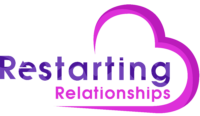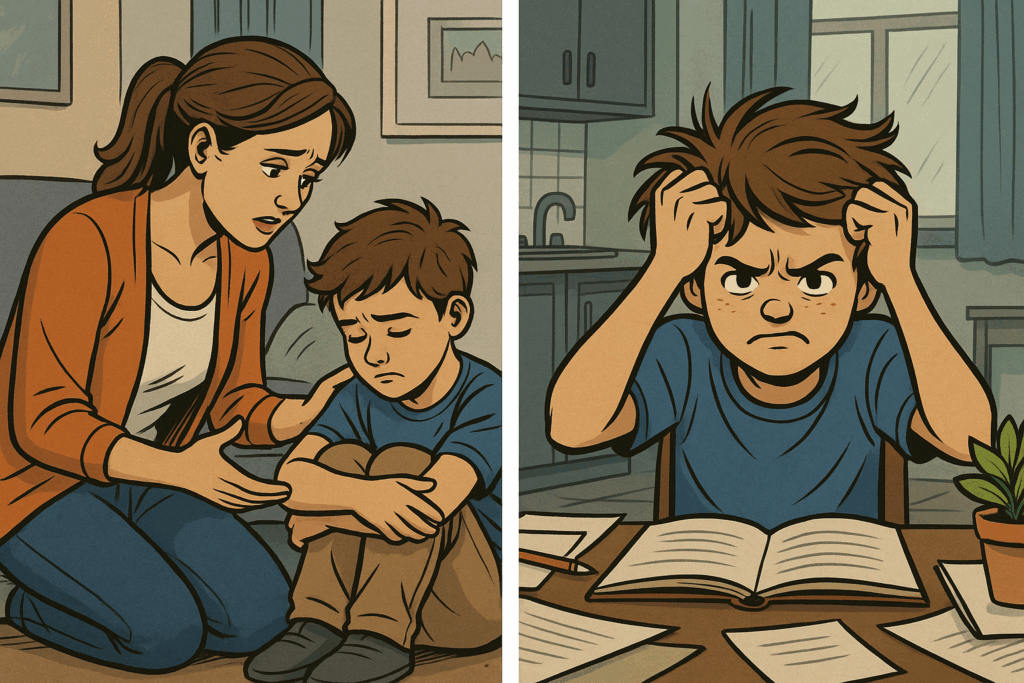Raising a child with ADHD can be both beautiful and overwhelming.
One moment, your child is creative, curious, and full of energy. The next, they’re melting down in the supermarket aisle—or refusing to brush their teeth for the fifth time in a row. You may feel like you’re walking on eggshells, bracing for the next explosion or distraction or forgotten homework sheet.
You’ve tried routines. You’ve tried consequences. You’ve tried rewards, charts, and heartfelt talks. But nothing seems to stick.
If this is your world, you’re not alone—and you’re not doing anything wrong. Parenting a child with ADHD requires a different kind of playbook. One rooted in understanding, nervous system regulation, and connection—not just discipline.
Understanding ADHD: It’s Not Just “Bad Behaviour”
ADHD isn’t about laziness or lack of discipline. It’s a neurodevelopmental difference that affects how a child regulates attention, emotion, and impulse control. That means your child isn’t being defiant on purpose—they’re struggling with systems of the brain that are still developing.
Children with ADHD may:
- Have difficulty following instructions or routines
- Struggle with emotional outbursts and frustration tolerance
- Forget what they were just told, even if they were listening
- Get easily distracted by noise, movement, or internal thoughts
- Feel deeply sensitive, reactive, or ashamed
- Crave novelty but struggle with transitions
When we understand the why, we can shift how we support them.
The Emotional Toll on Parents
ADHD affects the whole family. Parents often report:
- Feeling exhausted, reactive, or burned out
- Constantly second-guessing their parenting choices
- Fights with co-parents or teachers over “what to do next”
- Guilt for losing their temper, even when they’re trying their best
- Grief or fear about what the future holds
Therapy offers a space to process your own experience—and learn tools that help you parent from a place of calm, clarity, and connection.
Shifting from Power Struggles to Co-Regulation
Traditional discipline models often fail with ADHD kids. Why? Because they rely on executive functioning skills the child doesn’t yet have—like sustained attention, impulse control, and delayed gratification.
Instead, we focus on co-regulation:
- You model calm so they can mirror it
- You become the “safe base” they return to when overwhelmed
- You reduce shame by validating their experience—even when holding a boundary
This doesn’t mean permissiveness. It means firm, loving structure, delivered with emotional attunement.
👣 1. Structure with Flexibility
ADHD brains thrive with structure—but only when it’s predictable and compassionate.
Try:
- Visual schedules with images or icons
- Clear morning/evening routines with buffer zones
- Timers or musical cues for transitions
- Regular check-ins instead of sudden rule changes
- Building in micro-breaks between tasks
Consistency builds a sense of safety. Flexibility builds resilience.
🧘 2. Emotion Coaching and Mindfulness
Many ADHD children are emotionally intense. They need help naming, tolerating, and moving through emotions, not suppressing them.
Teach:
- “Name it to tame it”: “You’re feeling really frustrated right now.”
- Body scans or “colour zones” to describe internal states
- Breathing games (e.g., “smell the flower, blow out the candle”)
- Mindful movement like stretching or shaking
- Safe ways to release anger (e.g., drawing, pillow punches, nature walks)
The more we regulate ourselves, the better they learn to regulate, too.
🍎 3. The Lifestyle Triangle: Sleep, Food, Movement
Children with ADHD often have fragile regulation systems. A bad night’s sleep, skipped meal, or overstimulating environment can unravel their ability to cope.
We focus on:
- Sleep routines with dim lighting, consistent bedtimes, and screen limits
- Protein-rich meals and snacks to stabilize blood sugar
- Outdoor play and exercise to burn off excess energy and boost focus
- Reducing sensory overload (e.g., noise-cancelling headphones, decluttering)
Small changes to lifestyle = big shifts in behavior.
🤝 4. Parent Coaching: You Deserve Support Too
You are not meant to do this alone. Many parents benefit from sessions focused on:
- Creating systems that work for your child’s brain
- Navigating school accommodations or IEPs
- Setting boundaries without shame
- Repairing after conflict
- Understanding your own stress responses
And if your child has ADHD, there’s a good chance you or your co-parent do too—which means intergenerational patterns may be in play. Therapy can gently untangle them.
💬 What About Labels and Diagnosis?
A diagnosis of ADHD can feel like a relief—or a weight. In therapy, we approach diagnosis not as a judgment but as a map: a way of understanding what supports are needed and how to advocate effectively at school, home, and in relationships.
Labels don’t define your child. They guide how we support them with clarity and compassion.
🌱 This Is Not About Perfect Parenting. It’s About Presence.
There is no perfect strategy. What matters most is that your child feels:
- Seen
- Valued
- Supported—even when they’re struggling
And that you feel resourced, informed, and less alone.
I work with parents and children across Queensland and beyond, offering video sessions tailored to families navigating ADHD, as well as occasional in-person appointments by request.
👉 Let’s Start This Journey Together
If parenting your child has become more stressful than joyful, you’re not failing—you’re just needing more support. Together, we can create a pathway to calm, clarity, and connection.
Contact us to book an ADHD-informed parent or family session today. You don’t have to parent alone.

